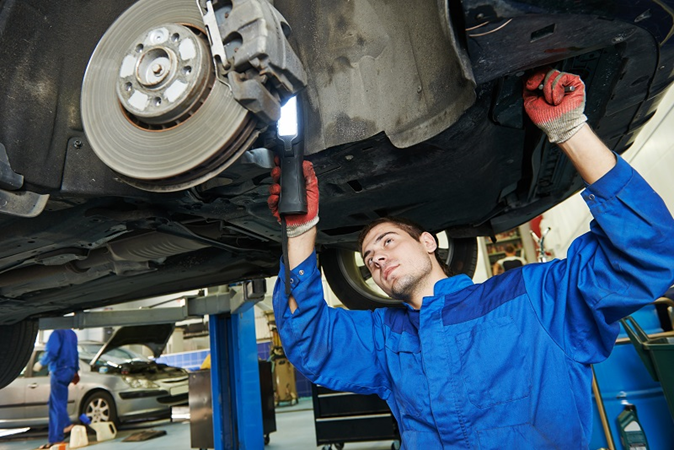Brakes discs are key parts of your vehicle’s stopping power. When they wear down or get damaged, your safety is at risk. Knowing the benefits of good brake discs helps you brake better and stay safe. Proper maintenance keeps them working well for longer. This post covers how brake discs work, their benefits, and simple ways to keep them in shape.
A type of brake which uses calipers to squeeze the pair of pads against a specific disc to create friction that can retard the shaft’s rotation either to hold it stationary or reduce the rotational speed is called the disc brakes. The wheels do not have to be removed for the owner to see the brakes. As compared to the drum brake, these braking systems have a better power to stop the motion of a running vehicle instantly. You have a wide range of choices in these brakes, as this is a favored choice for many.
Working of Brake Discs:
This system consists of a brake caliper, brake disc, and the brake pads. Hydraulic fluid, which is pressurized, squeezes the friction material of the brake pad against the rotating brake disc surface when the brake pedal is applied. These actions result in the friction and thus enables the vehicle to either slow down or even stop.
Brake Discs: An Apt Option
Opting for the brake discs, you can look forward to multiple benefits. Some of these include
- These brakes tend to work effectively in the heat. This is because the disc is closer to the pads and expands even when the clamps and calipers are relaxed. This means you are not required to exert as much of pressure on the pedals.
- The brake disc can be a blessing even in wet weather conditions. The water is washed off the disc, which means it does not prevent friction due to the buildup.
- The braking force with these brake discs tends to be more consistent as compared to the other braking systems. This helps you judge how much pressure needs to be applied while braking. You tend to reach your destination quicker as you spend less time in controlling your braking system
Basic Maintenance of the Brake Discs:
The rotor and the pads of these brakes experience wear and tear with the passing of time. You need to ensure replacement or rebuffing periodically. Here are few tips to help in the apt inspection of these brakes.
Before venturing on the inspection, make sure you have a wrench that is six-inches, jack stands, jacks, and a bungee cord or even an active wire. Also, ensure your wrench has replacement pads, a set of new pads, and the brake pad grease. Ensure you have not used the vehicle for at least an hour prior to the inspection.
- One end of the car needs to be raised on a jack stand. It is advisable to loosen the lug nuts that are on the wheels.
- Once the vehicle is on the jack stand, remove one wheel and inspect the brake discs with the help of the ‘inspection hole’ in the caliper. You get a view of the thickness of the brake. If any wear and tear are spotted, you need to take this to a reputed professional.
- Using the six-inch wrench, remove the caliper from the said discs by disconnecting the bolts. Make sure to secure the caliper to the car but away from the discs with the help of the strong wire.
- The brake pads are located inside the caliper with the help of clips or bolts. The pads need to be replaced if these are less than ¼ of an inch in thickness. For installing the new pads, just ensure to lubricate the back of these pads with the brake pad grease.
- Check the disc for any glaze and remove the same with the help of sandpaper. In case of grooves in the disc, you need professional help.
- When choosing the brakes discs, ensure you opt for reputable and experienced manufacturers, as they can last long and are effective for a long period.













Oscar O'Malley
December 28, 2017 at 7:03 pm
I really like that you mentioned that brake discs aren’t affected by wet weather conditions. I just bought a used car from a friend, and it’s not in the best shape but it runs. I’ll be sure to take it in to be inspected and make sure the brakes are in good condition as well.
buy seo backlinks
December 29, 2017 at 11:09 pm
Just love your website
admin
January 2, 2018 at 3:51 pm
Thanks